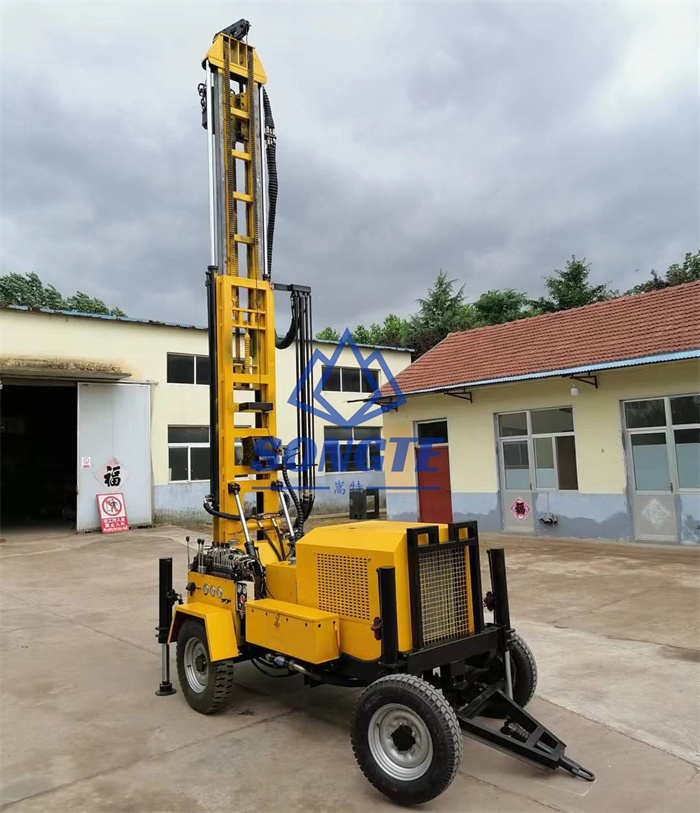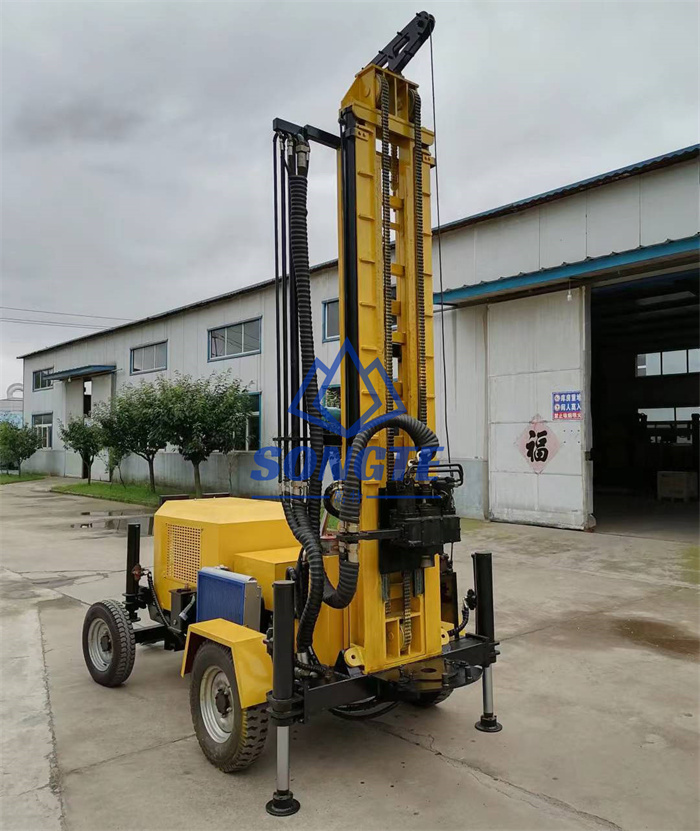Dominando a Arte da Perfuração de Poços de Água: Seu guia abrangente para sondas de perfuração de poços de água
Introdução
Water is a fundamental resource essential for life, and ensuring a steady and clean water supply is a top priority for many. One of the key methods to access groundwater is through water well drilling. Neste artigo, we will explore the ins and outs of water well drilling rigs, an essential tool in this process.
What is a Water Well Drilling Rig?
A water well drilling rig is a specialized piece of machinery designed to create wells that tap into underground water sources. These rigs are crucial for various applications, including residential water supply, irrigação agrícola, industrial use, e muito mais. They come in various sizes and configurations to meet the specific needs of different projects.
Types of Water Well Drilling Rigs
Sondas de Perfuração Rotativas: These rigs use a rotating drill bit to cut through the earth’s surface and create a borehole. Rotary drilling rigs are commonly used for deep water wells and are suitable for various geological conditions.
Percussion Drilling Rigs: This type of rig uses a hammering action to break through the ground. Percussion drilling rigs are often used for shallow water wells and are faster than rotary rigs for shallower depths.
Cable Tool Drilling Rigs: Also known as a “spudder rig,” this traditional method involves raising and dropping a heavy drill bit to break through the ground. While less common today, cable tool drilling rigs can be effective for specific applications.
Components of a Water Well Drilling Rig
Understanding the key components of a water well drilling rig is essential for anyone considering a well drilling project:
Mastro: The mast is the vertical structure that supports the drilling equipment. It is designed to withstand the weight and torque of drilling.
Drill Pipe: This is a series of connected pipes that are used to carry the drilling fluid and transfer the drilling torque to the drill bit.
Drill Bit: The drill bit is the cutting tool that penetrates the earth’s surface. Different types of drill bits are used depending on the geological conditions.
Hoisting System: The hoisting system is responsible for raising and lowering the drill string and other equipment into the wellbore.
Power Source: Drilling rigs are powered by various sources, including diesel engines or electric motors. The power source provides the energy needed for drilling operations.
Control Panel: The control panel allows the operator to monitor and control the drilling process, including the rotation speed, drilling fluid flow, and other critical parameters.
Choosing the Right Water Well Drilling Rig
Selecting the appropriate water well drilling rig for your project is crucial. Consider the following factors:
Geological Conditions: Different rigs are suited for various geological formations. Consult with a geologist or drilling expert to determine the best rig for your location.
Depth of Well: The depth of your well will influence the type of rig you need. Rotary rigs are better for deep wells, while percussion rigs are suitable for shallower depths.
Budget: Your budget will also play a significant role in your choice. While rotary rigs tend to be more expensive, they are versatile and durable.
Environmental Impact: Consider the environmental impact of your drilling project. Some rigs may be more eco-friendly than others.

Conclusão
Water well drilling rigs are essential tools for accessing underground water sources. Understanding the different types of rigs and their components is crucial for a successful drilling project. When planning your water well project, consult with experts and choose the right rig that suits your specific needs, budget, and environmental considerations. With the right equipment and expertise, you can ensure a reliable and sustainable water supply for your residential, agricultural, or industrial needs.
 songtemachine
songtemachine

